Canary in the Coal Mine by Charles Salzberg
Guest Post + Book & Author Info + Giveaway!
Don’t miss any Book Tour Posts! Click the link here.
Canary in the Coal Mine
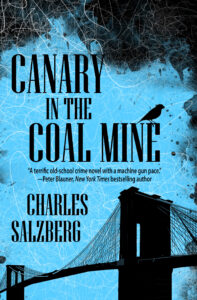 PI Pete Fortunato, half-Italian, half-Jewish, who suffers from anger management issues and insomnia, wakes up one morning with a bad taste in his mouth. This is never a good sign. Working out of a friend’s downtown real estate office, Fortunato, who spent a mysteriously short, forgettable stint as a cop in a small upstate New York town, lives from paycheck to paycheck. So, when a beautiful woman wants to hire him to find her husband, he doesn’t hesitate to say yes.
PI Pete Fortunato, half-Italian, half-Jewish, who suffers from anger management issues and insomnia, wakes up one morning with a bad taste in his mouth. This is never a good sign. Working out of a friend’s downtown real estate office, Fortunato, who spent a mysteriously short, forgettable stint as a cop in a small upstate New York town, lives from paycheck to paycheck. So, when a beautiful woman wants to hire him to find her husband, he doesn’t hesitate to say yes.
Within a day, Fortunato finds the husband in the apartment of his client’s young, stud lover. He’s been shot once in the head. Case closed. But when his client’s check bounces, and a couple of Albanian gangsters show up outside his building and kidnap him, hoping he’ll lead them to a large sum of money supposedly stolen by the dead man, he begins to realize there’s a good chance he’s been set up to take the fall for the murder and the theft of the money.
In an attempt to get himself out of a jam, Fortunato winds up on a wild ride that takes him down to Texas where he searches for his client’s lover who he suspects has the money and holds the key to solving the murder.
“Charles Salzberg’s Canary in the Coal Mine is everything a reader wants in a great crime novel, and then some. The rat-a-tat cadence of the noir masters, seamlessly blended with the contemporary sensibilities of an author thoroughly in control of his craft. I liked this book so much I read it twice. No kidding. It’s that good.”
—Baron R. Birtcher, multi-award winning and Los Angeles Times bestselling author
To purchase Canary in the Coal Mine, click on any of the following links: Amazon | Down & Out Books
Genre: Crime/Noir
Published by: Down & Out Books
Publication Date: April 18, 2022
Number of Pages: 276
ISBN: ISBN-13: 978-1-64396-251-1
Guest Post by Charles Salzberg
If at First…
When any of my friends or students ask my advice about how to “make it” as a writer (as if any writer ever considers their career “made,”) they hear three words: “Never give up.”
Of course, it’s not quite as simple as that, but one thing’s for sure, if you’re not fully committed, if you give up after a few submissions come back with “no thanks,” I can pretty much guarantee you’ll go back to your job at Walmart (not that there’s anything wrong with that) because you won’t have a career as a writer.
Writers come in all shapes and sizes, but there are a few common traits I’ve noticed over the years. One, we suffer from “imposter” syndrome, and fear that at any moment we’ll be unmasked. Two, we’re a sensitive lot, not that anyone likes rejection. But with artists of all kinds, we get rejected way more than we get accepted. And if you want to make it, you have to steel yourself for all kinds well-meaning (and sometimes not so well-meaning) criticism and rejection. Or, as my friend’s father used to say, “you can’t catch a fish unless you throw your line in the water.”
Swann’s Last Song was my first crime novel and the first in what turned out to be a series of five Swann books. And yet it took twenty-five years between the time it was written and the time it was published. Here’s why.
That first Swann was written as a contemplation of the world we live in wrapped in a crime novel. Murder is a messy business and it’s a detective’s job to clean it up. Writers, too, are always trying to “clean up,” to make sense out of the world we live in. But what if the world is messy? What if everything is random? Chaotic? What if the pieces don’t always fit?
Growing up in the 1960s and ‘70s, this alternative view of the world, which seemed to be spinning out of control, fascinated me. There was the Cuban missile crisis, the assassination of John F. Kennedy and Martin Luther King, Jr., the war in Vietnam, Charlie Manson’s killing spree.
In the midst of this chaos, I came across this passage from Ross MacDonald’s, The Instant Enemy: “I had to admit to myself, that I lived for nights like these, moving across the city’s great broken body, making connections among its millions of cells. I had a crazy wish or fantasy that some day before I died, if I made all the right neural connections, the city would come all the way alive, Like the Bride of Frankenstein.”
But what if those neural connections were made and the city didn’t come alive?
So, in effect, I set out to write what a friend of mine called, “an existential anti-detective novel.”
I chose a skiptracer—a finder of lost things—for my anti-hero, Henry Swann. The plot starts out traditionally: Gorgeous woman hires detective to look for her missing husband. But I turned that conceit on its head by having Swann, a money-grubbing loser working out of a small office in Spanish Harlem, find that the man had been murdered, thus effectively putting him out of a job. But the wife disagrees with the police theory and rehires Swann to find the real killer. That quest takes the cynical Swann halfway around the world as he follows clues showing the dead man had several different identities and led several different, lives, among them a California rock star, a Mexican rebel, a German spy.
The novel ended with Swann confused, disillusioned, and no closer to the solution of the crime. the police find the perpetrator who had had nothing to do with all the clues Swann so carefully followed.
Editors and agents liked the book, but hated the ending, and I, young and stubborn said, okay, I’ll just wait you guys out. So, I put it in a drawer and forgot about it…Until, about twenty-five years later when I stumbled across it, took it out, read and decided that with a little up-dating, maybe I should try again. After all, a lot of time had passed and maybe things were different now.
So, I updated it and showed it to an editor at a house where I’d just finished book doctoring a true crime book.
“Love this,” the editor said, “but I’m afraid we can’t publish this with this kind of ending.”
“What if I change it?” I asked— in those twenty-five years, I’d either lost my principles or got smart enough to know how to capitulate.
Long story short. The book was published and, much to my surprise, it was nominated for a Shamus Award for Best First PI novel.* I lost, but it started me on the path of a crime writer, which I never intended to be. And now, I’ve had five Swanns published, Devil in the Hole, named as one of the best crime novels of 2013 by Suspense magazine, Second Story Man, also nominated for a Shamus Award and winner of the Beverly Hills Book Award, three crime novellas, and several short stories. And now, my latest, Canary in the Coal Mine will be published this spring.
But none of this would have happened if I hadn’t been stubborn enough to keep trying.
*The latest edition of the book, published by Down & Out Books, has both my original ending and the one I rewrote for the original publisher, so you can decide for yourself which one you like better.
Excerpt — Canary in the Coal Mine
Part One
New York City
“Doubt, of whatever kind, can be ended by action alone.”
—Thomas Carlyle, Past and Present
1
This Could Be the Start of Something Big
I wake up with a bad taste in my mouth.
It’s not the first time this has happened and it won’t be the last. I like to think of it as my personal canary in the coal mine. That taste usually means trouble on the horizon. Sometimes it’s someone else’s trouble. Sometimes it’s mine. Sometimes it’s both. Those are the times I have to watch out for.
Once I rouse myself from bed—it’s never easy when I’ve had a rough night—I launch into my usual routine. Shower, shave, brush my teeth, my pride and joy, especially the two phony teeth implanted on the upper left side replacing those knocked out in a particularly vicious fight I didn’t start, at least that’s the way I see it. The way I usually see it. It was a pickup softball game. A guy came into second hard and late and spiked my shortstop in the leg. It was bad. So bad, it took eleven stitches to close the wound. Someone had to do something and as usual I was the first one out there and the one who threw the first punch. That’s the drill for most of my fights. I never start them, well, hardly ever because being provoked doesn’t count. But when I do throw a punch I always have good reason. The fights usually end with me bloodied but unbowed. You might say I have a temper but I prefer to think of it as a short fuse and an obsession with justice. No one gets away with anything on my watch. I win a few. I lose a few. There’s always a price to pay and I always make my point. But let’s face it there are no real winners when it comes to violence. Everyone, even the winner, loses something. That’s just the way it goes.
These phony teeth of mine match the others perfectly. A dentist who owed me a favor—I provided him with all the information he needed to divorce his cheating wife and avoid being taken to the cleaners—planted them and swore no one could tell the difference. So far, he’s been right. I like to think those are the only phony things about me. Everything else, for better or worse, is me, all me. I don’t apologize for it. Take me or leave me. I don’t care.
Lately, I’ve had to curb the physical stuff. Now that I’m well into my forties, things are starting to fall apart. They say it’s the legs that go first, but in my case, it’s my shoulder. I displaced it throwing a punch at someone who deserved it, someone who’d had a little too much to drink and insulted a woman I was with. The embarrassing thing is I missed. Turns out that’s what did the damage. Missing my target. I had my arm in a sling for almost a month. It’s pretty much healed now though I sometimes feel it in damp weather. The doc warned me it could go out again any time. “Try to stay out of fights, Pete,” he said, then added, “though knowing you that’s not very likely.”
He was right. I’m combative. It’s my nature. I’ve never run away from a fight and I probably never will. If you don’t stand up for yourself, who will? I just have to be a little more careful now, which means choosing my battles more wisely.
I stop at the local diner for my usual breakfast: two cups of black coffee—neither of which take that bad taste out of my mouth—then head downtown to my office in Greenwich Village. Well, let’s be honest here. It’s not really my office. It’s the office of a friend who runs a small real estate firm here in the city. He has an extra desk he rents me for only a couple hundred bucks a month, which includes phone service and a receptionist, if you call the person who takes up space at a desk up front a receptionist. I mean, shouldn’t a receptionist be able to take a proper message? Shouldn’t they be able to direct someone to your desk, even if it’s in back, half hidden behind a pillar? But there’s a hitch—there always is. When business picks up and they have to hire another broker, it’s arrivederci, Pete. Fortunately, in the two years I’ve been here that’s only happened once, and then just for a couple months.
New York City real estate is like having a license to print money, but the competition for listings is fierce and how anyone but the crème de la crème makes a living is beyond me. But I can’t say being without an office puts much of a dent in my business, since it’s always been pretty much touch and go. Thank goodness for that bank overdraft protection thing which has kept the wolves from my door more times than I’d like to admit.
I’m a PI. I have a license that says so. I take it out and look at it every so often, just to remind myself I actually have a profession. Profession. I say the word aloud. It’s a strange word. It makes me think of the “world’s oldest.” I’ve done pretty much everything in my life except for that, though some might not make much of a distinction between what I do and what they do. They do it on their back. I do it on my feet. That’s pretty much what sets us apart. It’s like that Sinatra song. You know the one. Puppet, pauper, pirate, poet, pawn and king. Only with me substitute menial jobs like shoe salesman, night watchman, doorman—one summer the year after I graduated college—hot dog vendor, dog walker, even a short stint as a waiter. I was the world’s worst. Half my salary went for broken glassware and plates. Once, I actually had to pay for a guy’s meal out of my own pocket to keep him from ratting me out to the owner and getting me fired. Turned out it wasn’t a very good investment. The next day I got canned anyway. I also spent a short time as a cop. More on that later.
This job as a PI stuck by process of elimination. The only real talent I have for anything was as a ballplayer, and after I washed out of the game because of injuries that pretty much made it impossible to throw or swing a bat, then trashed my way through that bunch of other jobs, I realized I was suited to do little else. My new profession meets a laundry list of criteria.
- I do not have to wear a suit and tie.
- I do not have anyone telling me what to do, where to be, and when to be there.
- It gives me an opportunity to use my brain, brawn (not that I’m brawny, but even now I’m still pretty solid, topping out at 170 pounds on my five-foot-ten-inch frame, but I’ve always been a physical guy willing to use what muscle I had), and ingenuity. But not too much of any of the three.
- It doesn’t take too much concentration since like half the population of the world, I’ve got ADHD issues. In other words, I lose interest very quickly.
- I make my own hours.
- I mind someone else’s business while I can ignore my own.
- The job fits my cynical, paranoid personality which makes me suspicious of everyone and supports a strong belief in Clare Boothe Luce’s claim that no good deed goes unpunished. I believe there is evil lurking in everyone’s soul, especially mine, though I do my best to fight against those darker urges. Other traits I own up to include being lazy, combative, argumentative, and stubborn. I love getting up in everyone else’s business, which gives me the perfect excuse to avoid mine.
I didn’t grow up watching cops and robber shows. My drug of choice was sports, especially baseball. I loved the game not only because I was good at it but because although it appears that for long stretches of time nothing is happening there’s always something going on. Even if it isn’t discernible to the eye. Baseball is not just a game of physical skill. It’s a game of thought, analysis, contemplation, and anticipation. Unlike other team sports, there is no time limit. It takes as long as it takes, and in this sense, it mimics life. No one knows when it’s going to end. Theoretically, a game can go on forever, ending only when one team has scored more runs than the other. It is a game of nuance. It is a game that can be won with power, or speed, or defense, or a combination of these attributes. It can be won on the mound, at the plate, or in the field. It can be won by a score of one nothing or twelve to eleven. It can end as a result of a timely hit or an untimely error. It is a game of ebb and flow. It is unpredictable. Just like life.
I’ll take a thinking player over a naturally talented one any day of the week. Baseball is a game like chess. The best ballplayers are always several steps ahead of the game. They’re thinking about what they’ll do long before they actually do it. “If it’s hit to me I’ll fake the runner back to second then go to first.” That sort of thing does not show up on the TV screen nor does it appear in the box score. But that’s what wins and loses games.
Baseball imitates life: Long stretches of nothingness, then short bursts of action, which comes as a logical conclusion of those stretches of nothingness. This is much how our lives unfold. At least it’s the way mine does.
I thought I’d make it as a major league ballplayer, but I never got the chance to prove it. I was a pretty good high school pitcher and when I wasn’t pitching, I played shortstop with middling range, a good arm, and a better than average bat, although I lacked power. I told myself I’d grow into it, though I never did. I threw the ball in the mid-eighties, not very fast by today’s standards, when young players can now flirt with a hundred on the gun. But I had a decent curve and was working on what I hoped would be a better than average changeup. I figured by the time I got to the minors I’d ramp it up, adding a few miles per hour to the fastball. I was good enough to earn a partial scholarship to a small upstate New York college.
But before I got halfway through my first college season, I developed arm trouble. In those days, more than a quarter century ago, Tommy John surgery wasn’t what it is today and it certainly wasn’t for college kids without a buck to their name. Even if I wanted it, who was going to pay for it? My father was lucky to make the rent each month and if it hadn’t been for that athletic scholarship, I would have wound up working some soul-sucking civil service job.
Once I accepted the fact I’d never pitch again, I had to shift gears, away from the idea of becoming a professional athlete. They let me keep the scholarship so long as I maintained my grade point average. I was certainly no A student, but when I put my mind to it, I can do almost anything, no matter how unlikely. I sure as hell wasn’t the best student in the world, but I wasn’t the worst either, and somehow, I made it through to graduation. The first to do so in the Fortunato line. My mother’s family was a bunch of brainiacs. She went to college and might have gone further if she hadn’t met my father. That was the first thing he screwed up in her life. It wouldn’t be the last.
I’d like to say I’m choosey about the kinds of cases I take, but that would be a lie. It’s not that I don’t lie, by the way, it’s just that I don’t lie frivolously, which makes it difficult to know whether what comes out of my mouth is the truth or a lie. That’s not necessarily a bad thing. In fact, in my business it probably qualifies as a plus.
It’s that time in New York when the city isn’t quite sure what season it wants to be. A few days before Halloween, people are already gearing up for Thanksgiving, then Christmas. Always one, sometimes two holidays ahead of itself. One day in late August, I was shocked to see plastic pumpkins lined up on display in a CVS pharmacy. As if life isn’t disorienting enough.
The weather doesn’t help. Today, when I look out my window, the sky is cloudless and that shade of deep blue so beautiful it makes you want to cry. But it’s deceiving because when I get outside the temperature is hovering in the low forties. But like the city itself, the weather can break your heart by promising something it just can’t seem to deliver. Tomorrow it’s supposed to be pushing seventy, at least that’s what the weather people are forecasting. And as if that isn’t disorienting enough, the next day it’s supposed to drop back to the fifties with overcast skies and intermittent showers. It’s that schizo time of year when you never quite know what to wear. As a result, I always seem to be dressed one or two days ahead or behind the weather.
I usually roll into my office around ten, which I think is a pretty decent time considering the erratic hours I keep. Sometimes it’s because I’m on a job, sometimes it’s because I suffer from debilitating bouts of insomnia. When that strikes either I lie in bed thinking about all the things I could have done different in my life, and there are plenty, or I get up, get dressed, and roam the streets. In this city, there’s always plenty to keep things interesting. So yeah, New York really is the city that never sleeps. At least that’s true for some of its citizens. No matter how late or early it is I’m never the only one walking the streets. But I’m probably the only one who has no idea where he’s going.
Obviously, not everyone is in agreement about arriving at a decent hour thing, because half a dozen other desks in the office are already filled with folks either working the phones or staring blankly into their computer. I park myself at my desk way in the back, near the bathroom, and as soon as I do, Philly, my friend and boss man of the real estate firm, appears in front of me.
“I wasn’t sure you were coming in today, Petey,” he cracks. He flashes a goofy grin after the words tumble out of his mouth like a waterfall. He’s a born and bred New Yorker so he talks as if he’s in a race to finish a sentence so he can move on to the next one. Sometimes, he speaks so quick the words stick to each other and he is this close to being unintelligible. Unlike others who have to ask him to slow the fuck down, I, being a born and bred New Yorker, too, can understand him without much effort.
When he speaks, he bares his teeth, which are a dull yellow and seem to be in a life-or-death struggle for room in his mouth. But his nose, well, that’s another story. Unlike mine, which has been broken too many times to count, his is straight and in perfect harmony with the rest of his face. You might suspect he’s had work done on it, but no, Philly was born this way. He is, no doubt about it, a handsome man—except for those teeth, which I keep advising him he ought to get fixed—and he knows it. He’s been married three times, each one of them a stunner, and if he ever gets divorced from his present wife, Marnie, I have no doubt there’ll be a fourth waiting in the wings. He can afford it, though.
“What are you talking about?” I say, tapping my watch for emphasis. “This is fucking early for me.”
“I’ve been here since eight, my friend. That’s early.”
“You’re not going to tell me about the damn bird, are you?”
“What bird?”
“The one who gets the worm.”
“I don’t need any bird to tell me when to get to work, Petey.”
“What can I say, Philly, other than you’re a better man than me.”
“Damn straight. You’d give everything in your bank account to change places with me, Petey, and you know it.”
“That wouldn’t be much, Philly, and you know it.”
He shrugs. “Maybe that’ll change. There was a broad in here earlier looking for you.”
“Yeah?”
“That’s right.”
“She actually asked for me?”
“Yeah. By name, not the usual ‘where’s that scumbag owes me money?’”
“What’d she look like?”
“That’s the first thing you ask?”
“I yam who I yam.”
He smiles. There are those teeth again. I want to give him the name of my dentist but I know it won’t do any good, so why bother?
“You and Popeye. She looks like you’d want to get to know her and spend a lot of time with her. If I weren’t so blissfully married, she’d be at the top of my list for number four.”
I resist asking, how long’s that gonna be for? and say instead, “That good, huh?”
“Yeah. That good.”
“I hope you didn’t try to sell her an apartment.”
“She didn’t look like she needed one.”
“Did she tell you why she wanted to see me?”
“Nope. But she did give me this.” He pulls a business card out of his pocket and tosses it on my desk. “Said you should call her. If I were you, I’d do it ASAP. She reeked of money and folks with money don’t like to be made to wait.”
I look at the card then bring it up close to my nose. It smells like lemons. The name on it is Lila Alston. I like the sound of that. And the smell of lemons. Her name reminds me of those in one of those pulp crime novels. Like Velma. Or Bubbles.
As soon as Philly dismisses himself, I dial the number. A woman’s voice answers. I take a shot.
“I believe you were looking for me, Ms. Alston.”
“If you’re Peter Fortunato that would be correct. But it’s Mrs. Not Ms. At least for the moment.”
“Then I’ll take a wild guess and say this has something to do with your husband.”
She laughs. It’s short and it’s raspy and it’s sexy. Very sexy. “That’s correct. And it appears I may have found the right man…for a change.”
“Would you like to meet in person or continue this over the phone, Lila?”
“I liked it better when you were more formal, Mr. Fortunato. At least until we get to know each other a little better.”
I can’t wait. I’m already getting the beginnings of a hard-on.
“Got it. So, phone or meet up, Mrs. Alston?” I’m hoping she’ll agree to the latter. I have to see for myself what this chick looks like because Philly is only prone to exaggeration when it comes to real estate.
“I suppose a face-to-face meeting would be more advantageous. This is a rather…odd situation and it might take some explaining.”
“I specialize in odd situations, Mrs. Alston.”
“I suspected as much.”
“By the way, how did you come to get in touch with me?”
“I went down a list of private investigators until I found a name I liked. It happened to be yours. Fortunato. It has a rather nice ring to it.”
“Yeah, just like the sound of a cash register. So, you know nothing else about me?”
“I didn’t say that, Mr. Fortunato. I didn’t say that at all.”
***
Excerpt from Canary In the Coal Mine by Charles Salzberg. Copyright 2022 by Charles Salzberg. Reproduced with permission from Charles Salzberg. All rights reserved.
Charles Salzberg — Author of Canary in the Coal Mine
Charles Salzberg is a former magazine journalist and nonfiction book writer. His novels Swann’s Last Song (the first of the five Henry Swann novels) and Second Story Man were nominated for Shamus Awards and the latter was the winner of the Beverly Hills Book Award.
Devil in the Hole was named one of the best crime novels of 2013 by Suspense Magazine. His work has also appeared in several anthologies as well as Mystery Tribune. He is a former professor of magazine at S.I. Newhouse School of Public Communication at Syracuse University, and he teaches writing in New York City.
He is one of the Founding Members of New York Writers Workshop, and is a member of the Board of PrisonWrites and formerly a board member for MWA-NY.
To learn more about Charles, click on any of the following links: www.CharlesSalzberg.com, Goodreads,
BookBub, Instagram – @CharlesSalzberg & Twitter – @CharlesSalzberg
Visit all the Stops on the Tour!
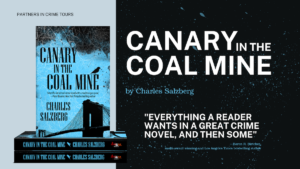
04/09 Interview podcast @ Blog Talk Radio
04/09 Review @ Just Reviews
04/20 Guest post @ The Book Divas Reads
04/22 Review @ Novels Alive
04/25 Guest post @ Novels Alive
04/25 Showcase @ nanasbookreviews
04/26 Showcase @ Books, Ramblings, and Tea
04/28 Interview @ I Read What You Write
05/01 Guest post @ Author Elena Taylors Blog
05/05 Review @ Book Reviews From an Avid Reader
05/05 Showcase @ The Bookwyrm
05/06 Showcase @ Celticladys Reviews
05/07 Review @ Pat Fayo Reviews
05/09 Review @ Nesies Place
05/13 Showcase @ Silvers Reviews
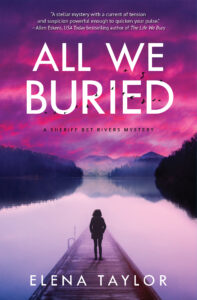 Elena Taylor
Elena Taylor
Elena Taylor is the author of All We Buried, available now in print, e-book, and audio book format at all your favorite bookstores and on-line retailers.
For more information on All We Buried, click on the link here to visit the home page.
Silver Falchion Award Finalist, Best Investigator 2020
Foreword INDIE Award Finalist, Best Mystery 2020

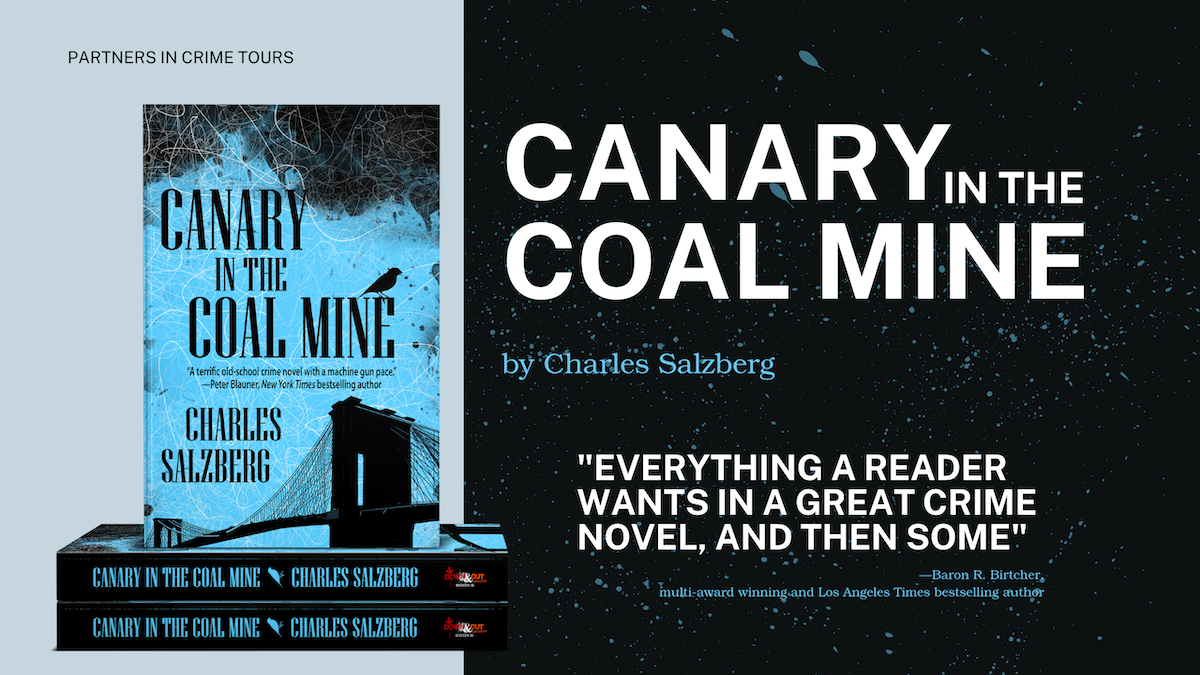
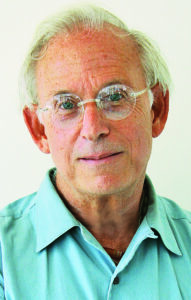
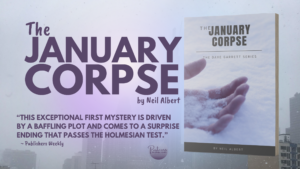
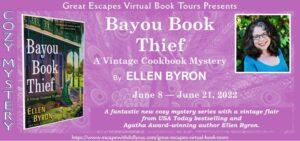
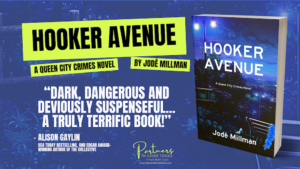
Thanks for the great guest post!
I enjoyed it too!